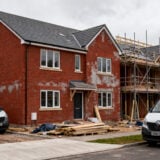Activity in the central London property market picked up in the second three months of 2019 following two slower moving quarters, according to the latest market update report to be published.
Overall asking prices fell by 3% but sold prices increased by 2% compared with the second quarter of 2018, the data from the Winkworth report shows.
Sales soared by 20% compared to the first quarter of 2019, but compared with the second quarter of 2018, transactions were down by 16%. ‘The market saw a boost in transactions after the Brexit deadline passed at the end of March when home movers decided, despite no further clarity on the country’s position in leaving the EU, to abandon the wait and see approach that many had adopted for so long,’ the report says.
‘As a result, buyers have become more determined to secure the property they want and are taking the buying process seriously, with more viewings and realistic offers being submitted, and subsequently more sales,’ it adds.
There was also saw an increase in the number of off-market deals taking place and Winkworth says that this improvement in sales activity can be attributed largely to a correction in prices. ‘Buyers may have become more serious about securing a deal, but only where a property is priced realistically. Those properties whose values haven’t corrected in line with the market may result in a longer and more complicated sale,’ it explained.
‘As such, and as predicted, asking prices have come down, but our transactions, sold prices and overall price achieved have all increased. In fact, more than a fifth of our properties sold for the asking price or above during the second quarter,’ the report also says.
Overall, the report suggests that the market is still very much driven by needs based buyers, so as uncertainty surrounding Brexit continues, market activity should be steady albeit with low levels of transactions for the remainder of the year. Furthermore, the prospect of a cut in stamp duty, as proposed by the new Prime Minister, could also result in more people holding off their property purchases.
It also explains that as many asking prices are not in line with the current market and, by reducing prices to be more realistic, properties can attract more serious buyers and in doing so, increase competition, driving achieved prices up.
Winkworth offices therefore achieved an average of 97% of the asking price during the second quarter of 2019, some 5% higher than both the previous quarter and the same period in 2018. This compares with an 88.7% average across the general market for the same areas, as recorded by LonRes.
Furthermore, 22% of deals agreed in the quarter sold for more than the asking price, reflecting heightened competition amongst buyers who are determined to snap up their chosen property. The average price per square foot has held steady for some time now, with only marginal fluctuations in every quarter since the first quarter of 2018. The figure reduced by 1% this quarter, but still sits 18% below peak levels of 2014.
According to Dominic Agace, chief executive officer of Winkworth, it has been an interesting time for the central London market. ‘We’re pleased to see that as prices have corrected, transaction and viewing activity has increased. The political backdrop continues to play a part in how the market performs, so it will be interesting to see the changes ahead now that Boris Johnson is Prime Minister. He has already shown a commitment to London housing during his time as the Mayor of London, and his proposed policies, should they come into effect, could lead to a positive uptake in transactions further down the line,’ he said.
‘We would expect the proposed reduction of the higher stamp duty rate teamed with the low exchange rate to make buying in central London more attractive to both domestic and foreign buyers. In particular, if the value of the pound drops upon a hard Brexit we would expect foreign interest to increase,’ he explained.
‘However, of more interest now is clients turning their attention to whether Boris will call an early general election and whether he will be able to defeat Labour. This will continue to feed anxiety into the property market whilst that question remains,’ he added.






